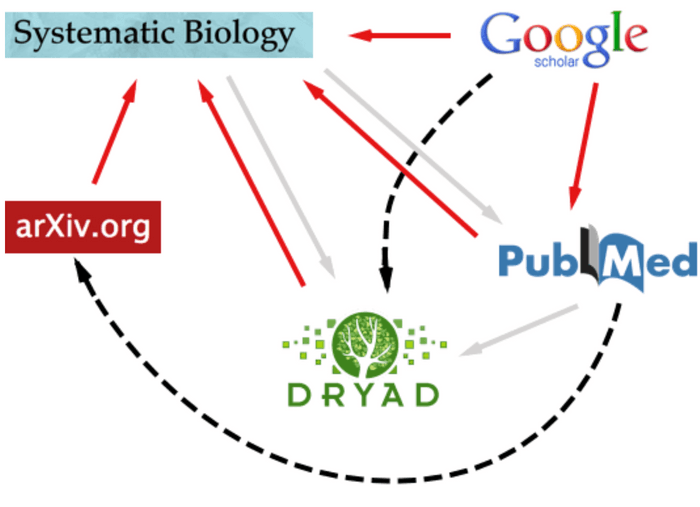Making friends with linked data

One thing that the Internet couldn’t live without is links. In fact, the Web is pretty much defined as a collection of links between virtual resources, and a fundamental part of good web citizenship is providing links to related pieces of content. Helpful, working links are vital to the health of the web.
So it goes with papers. In today’s complex ecosystem of academic publishing, a single research project may yield several distinct web-based outputs: a preprint manuscript here, peer-reviewed paper here, and dataset over there. The ease with which an author can now disseminate her different research outputs is incredible. With sites like Arxiv, Figshare, Dryad and the nascent Peerage of Science, your data, figures, and manuscripts can live in many different places on the road toward publication.
However, a healthy Web doesn’t necessarily mean a healthy Web for scientists. If websites and search engines aren’t providing the links you need to effectively mine the literature, you’re stuck. Which is why for this post, we stepped into the world-wide web for research and asked whether our papers are getting the links that we, as authors and readers, deserve.